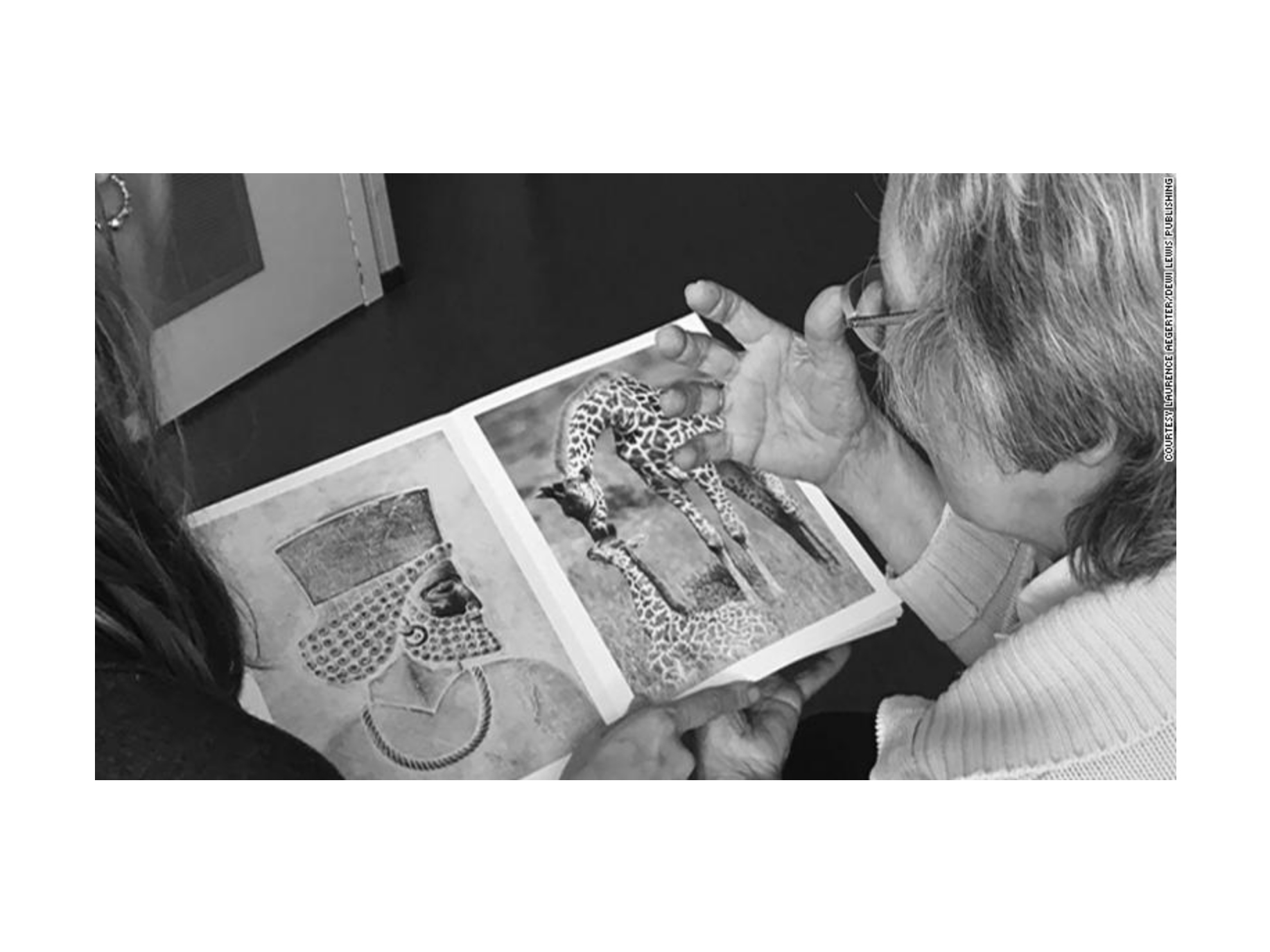They say a picture is worth a thousand words and for people with dementia, photographs can also spark memories, bring joy and sometimes help facilitate conversation when patients begin to withdraw, become depressed or lose their ability to speak.
Photo books have long been used to help families and caregivers forge a better connection with people with dementia. A project developed by French visual artist Laurence Aëgerter, over a span of 3 years, takes this idea in new directions. In the Photographic Treatment, Aëgerter places unexpected images together that have been demonstrated to help AD patients recall events from childhood or which elicit a strong reaction.
Rather than using photographs of friends or family in hopes a name or memory will surface, Aëgerter uses familiar images like a playground slide or a ship, paired with an unexpected photo that might have a similar composition but not subject matter. The pairings can elicit a smile or a laugh as a result of the juxtaposition or may trigger a specific memory. There is no right answer, therefore the stress and frustration of looking at photographs that patients are hoped to recall in a specific way, is lifted.
The images themselves are black and white, with the focus on a single image, making the photographs clear and free of distractions dementia patients may have difficulty ignoring. Using the photo intervention tool, patients may feel a sense of well-being, tap into their imagination and find new ways to connect with others.
The Photographic Treatment is available as a free download, printed in a book series and printed on wooden tablets. Learn more about this therapeutic tool and how it can help older adults with dementia not only stimulate their minds, but find joyful moments connecting with others, by following this link to the project’s website.
Currently, 1 in 7 people over the age of 80 worldwide suffer from dementia. In the United States alone, 5.7 million people are living with Alzheimer’s and by 2050, this number is expected to reach 14 million. Although there is no cure for AD, early diagnosis can help delay the onset of symptoms and give families more time to make plans for future caregiving needs.






Add Your Voice
0 Comments
Join the Discussion